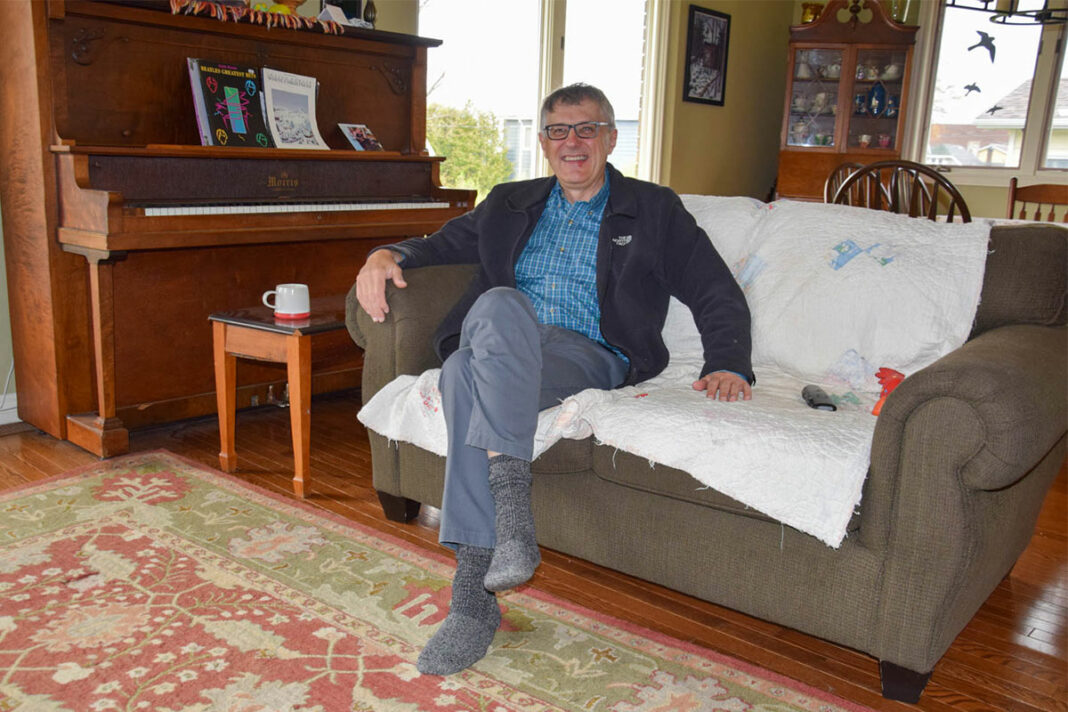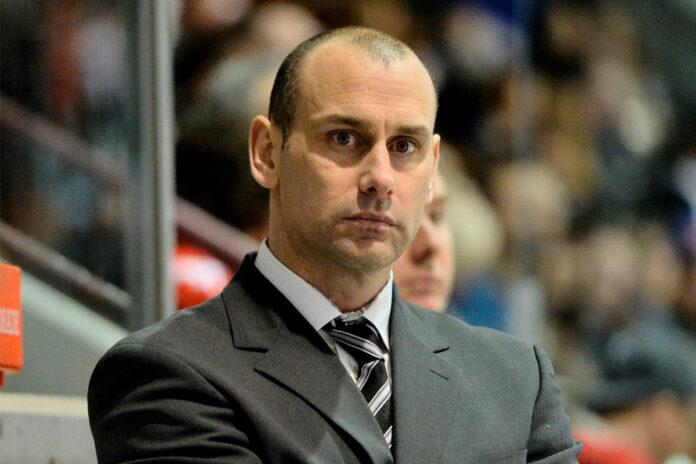LITTLE CURRENT—Doctor Ken Barss is bidding a fond adieu to Manitoulin after more than a quarter century of providing medical care to Island residents and he admits the hardest part of retiring from his practice as part of the Northeastern Manitoulin Family Health Team is leaving the people, but the time has come. He and his wife Sue and daughter Kelsey are moving to Ottawa to be closer to his family in Ottawa, Toronto and Montreal—as well as those back in his native Nova Scotia.
Manitoulin was actually a last-minute add-on to the tour of Northern Ontario communities Dr. Barss took part in when deciding where to move from his practice in British Columbia. The medical professional had settled into a community on the Sunshine Coast in that province, but the work there was not to his liking, with many incidents of drug overdoses and violence presenting in the emergency rooms there.
“There are two different streams in BC,” noted Dr. Barss. “There are the people who are really healthy, active, and then there is this other group bent on destroying themselves.” The dichotomy was interesting, he said.
“Medically, being the new kid in town, there were always people coming to me seeking drugs,” he lamented. The practice here on Manitoulin was a much different story (although the drug problems are on the rise here now as well) and his family were soon captivated by what the Island had to offer. A set of five kayaks sitting outside the Barss residence plays witness to some of the attractions that led to their decision to settle on Manitoulin.
“We enjoy the outdoors a great deal,” admitted Dr. Barss, who noted the family’s Boston Whaler across the street and a sailboat that gets good use each season.
But now the four Barss’ kids are in their 30s and most have moved away for their own careers.
“It makes sense for us to move to Ottawa,” he said. “We love Manitoulin, and it is hard to move, but for Kelsey there are not the opportunities here for her.”
“All our kids have developed strong friendships on the Island,” noted Dr. Barss, noting the family’s roots are deep here. “We all have really strong connections.”
Dr. Barss said that his decision to pursue family medicine as a career was in large part due to the variety and challenges of family medicine. “I think I would still make the same choice again,” he said. “There is a lot of negative press about family medicine, especially rural family medicine, but I still think it is the best. I had thought about obstetrics and even psychiatry at one point. The biggest thing for me, though, was the ongoing relationships.”
In small rural areas there is still a lot of trust in doctors in rural areas, he noted. “I think in urban areas there is a lot of pressure to refer to specialists,” he said, but noted that here a lot of people do not want to have to travel off-Island if they can avoid it.
The life of a rural physician is never dull, he said, and many times he has found himself challenged by what is presenting in the emergency room. He recalled a trauma coming in that involved three injured patients that saw him racing from patient to patient, stabilizing their wounds until a colleague could come in to assist.
Another incident that any Island resident can relate to was being caught at the bridge.
“We were dealing with a case where seconds mattered,” he recalled, “but when we got to the bridge it was already swinging. The EMS person had forgotten to call ahead.” Luckily, the bridge operator noticed the ambulance’s arrival and immediately swung the bridge back. In this case the result had a happy ending and the patient went on to recover.
“In rural medicine, it is never routine,” he said. “That is one of the reasons I went into rural family medicine.” Dr. Barss said that he would recommend rural family medicine to anyone interested in a practice that is challenging and rewarding in ways that being a specialist cannot provide.
“You get to know your patients and you see them on a regular basis,” he said. “As a specialist, you may see someone once or twice, maybe a follow-up.” In a rural family medicine practice, you follow the lives of your patients, sometimes literally from beginning to end.
Dr. Barss was effusive in his praise of the collegial atmosphere of the family health team and the reception he and his family received when settling onto the Island. He noted that the relatively rare turnover in the practice speaks volumes for the working atmosphere.
He also lauded the teamwork that takes place between allied health professionals, noting that the Northeastern Manitoulin Family Health Team does a very good job of distributing the load onto those best suited to meet the patient’s needs, leaving the critical issues that call for a doctor’s specific skills for the doctor to deal with.
“You never hesitate to call in a colleague,” he said. “I think we work really hard on getting along.” That isn’t always easy when dealing with a group of highly trained professionals who have their own opinions.
The working relationship with the students coming in from the Northern Ontario School of Medicine is also a positive part of working on the Island.
Dr. Barss does actually have a black bag. “I do have one, it’s a bit covered in dust right now, we all got them when we started out and carried them with us everywhere. After a while, you realize the hospital has everything you need,” he laughed.
Dr. Barss will be working part-time in Ottawa, but spending more time with family and some of the other things he enjoys doing. “The kids wanted us closer, but I realized it is time for me to have a change,” he said. “I find that as I get older, I like to be able to focus on one thing at a time. When I was younger, I enjoyed the challenge of having a dozen things coming at me at once.”





